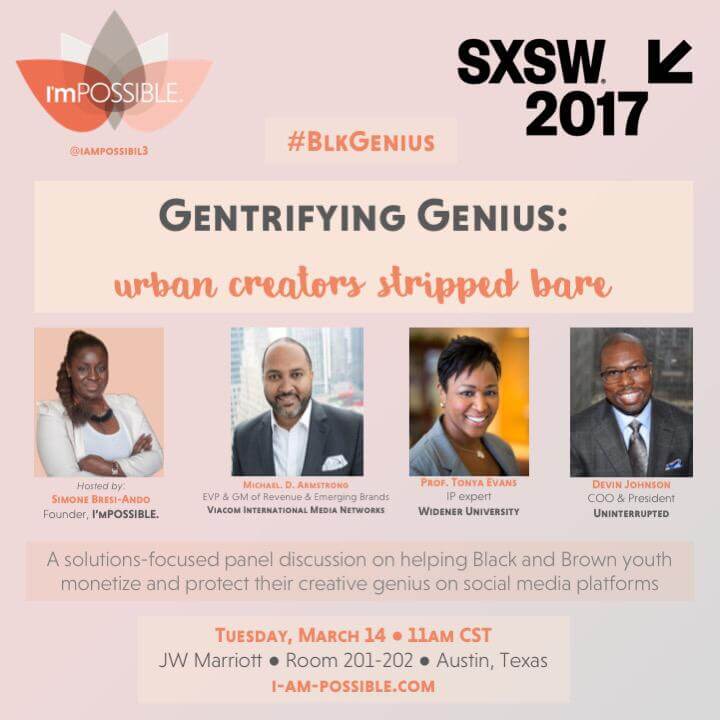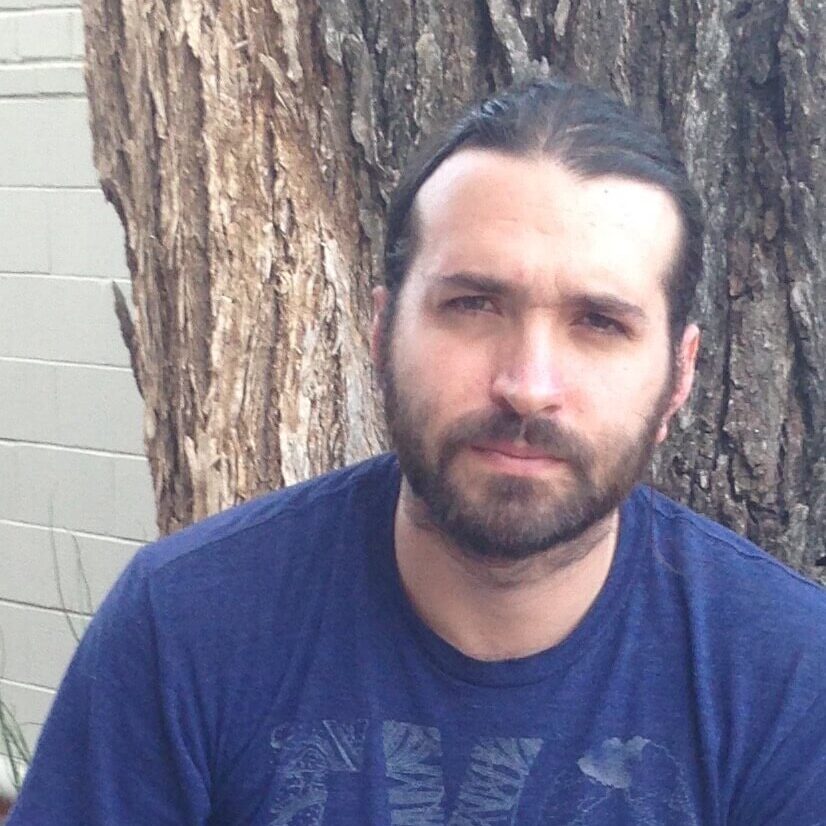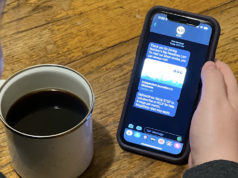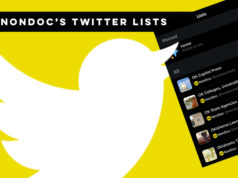(Editor’s note: This is the fifth in a series of film reviews and cultural observations from 2017’s South by Southwest festival.)
AUSTIN — Many of the sought-after panels at South by Southwest 2017 centered around the data and content of fashionable young people. The ways of a young person, if appealing enough, can make them an “influencer,” one who flaunts these ways on social media, in turn amassing huge followings.
The rewards of gaining online influence also come with risks. The ability to control content becomes harder the more viral it goes. Once something becomes popular enough, it’s only a matter of time before someone will seek to profit from it.
To that end, U.K.-based PR expert Simone Bresi-Ando‘s panel, Gentrifying Genius: Urban Creators Stripped Bare, asked some people of color in the entertainment world to ruminate on how “Black and Brown” social media users influence masses and how others use their cultural expression for profit (“culture jacking”). It also addressed monetizing online influence and how to protect your brand.
Don’t get culture jacked
Michael D. Armstrong, executive vice-president of revenue and emerging brands for Viacom new media, spoke about the demise of Vine. Vine’s stars eventually became their own self-generating brands. One of them, Andrew “King Bach” Bachelor, was employed for a moment as a consultant for Armstrong.
Conversely, 18-year-old Chicago native Kayla Newman (aka Peaches Monroee) created the phrase “Eyebrows on Fleek” on Vine in 2014 (see video above). The Vine garnered more than 116 million plays.
Armstrong then identified a Korean make-up company that had introduced a lip gloss called On Fleek, which a blogger subsequently described how to use in a video. Brands like Spotify radio also use “on fleek” to appeal to their customers, he said.
“This is an example where a young lady halfway around the world in the states has come up with a term that’s being commercialized by a Korean make-up company in a very big way,” Armstrong said.
Culture jacking predates social media, of course. Armstrong told of Wes Matthews, who, on the 87-88 Lakers championship team, celebrated his big win by using the phrase, “Three-peat!” Someone encouraged coach Pat Riley to form a company and trademark that. Riley has made millions off three-peat ever since.
Control your brand
Tonya Evans, associate dean of inclusion and associate professor of law at Widener Commonwealth, presented a basic idea of how future creators can control their phrases and content. One can’t know when a phrase or video will go viral, but one can be prepared, she said.
The main action one can take against someone culture jacking their idea is to have it copyrighted. Most young influencers, especially minority youth, don’t know where to begin.
First, you get a copyright or a trademark, then you get a patent. Three years later, Newman is trying to take control of her idea via a cosmetics and hair line. She’s using GoFundMe and has more than $15,000 of a $100,000 goal.
Although a professional photographer in the audience suggested creating an app that would make it easier for younger influencers to copyright their material, so far Copyright.gov is it.

‘You want someone who knows what ‘on fleek’ means’
Devin Johnson, chief operating officer at sports/digital media company Uninterrupted (founded by LeBron James and Maverick Carter), normally looks after athletes who must exploit their own influence in the short window they have. He emphasized the importance of companies partnering and learning from young online influencers who have huge social media influence.
“There’s a 25-year-old kid somewhere holding the key to your brand and how it’s going to be perceived in these social platforms,” Johnson said. “If you are going to give some millennial the keys to the car of your brand that you’ve been building for a hundred years, there’s a lot of risk associated with that. But, the risk of not doing it might be even bigger, because you don’t want to be the stale brand.
“You want someone who knows what ‘on fleek’ means, and knows when to use it.”
Johnson also offered a potentially useful suggestion for monetizing online influence: Identify brands that might target your followers. Making personal entreaties to those brands and companies could monetize your influence through paid product placements and endorsements. Last, he suggested starting your own email list of followers outside of social media and owning your own site.























